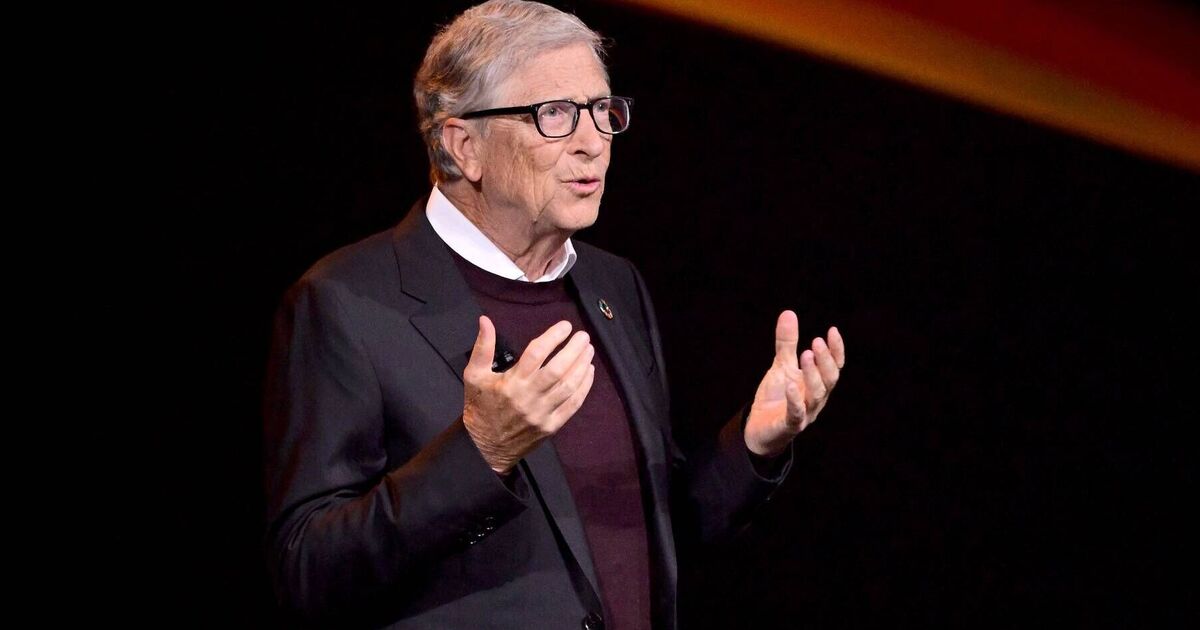Billionaire Bill Gates forecasts that technological advances, especially in artificial intelligence, will probably result in a shortened two-day work week within the next decade, as AI will substitute humans in “most things.”
Gates revealed his prediction in March during an appearance on “The Tonight Show with Jimmy Fallon.”
He explained that while current artificial intelligence lacks specialized knowledge, with human experts like physicians and educators still essential, the coming decade could bring dramatic shifts.
“It’s kind of profound because it solves all of these specific problems, like we don’t have enough doctors or mental health professionals, but it brings with it so much change,” the billionaire told Fallon. “What will jobs be like? Should we just work 2 or 3 days per week? So I love the way it’ll drive innovation forward, but I think it’s a little bit unknown [whether] we will be able to shape it.
“It’s very profound and even a little bit scary- because it’s happening very quickly, and there is no upper bound,” Gates told Brooks.
The Microsoft co-founder believes this emerging “free intelligence” technological era will compel society to grapple with challenging questions about which roles humans should continue filling. Gates projected that extremely few professions would survive such scrutiny.
In a February discussion with Harvard University professor and happiness expert Arthur Brooks, Gates stated that AI breakthroughs will usher in a “free intelligence” era, democratizing specialized knowledge for everyone.
“We’ll decide, like baseball- we won’t want to watch computers play baseball- so there will be some things that we reserve for ourselves, but in terms of making things and moving things and growing food, over time, those will basically be solved problems,” he said.
While a two-day work week today appears idealistic, discussions about reducing the current five-day structure have gained momentum in recent years. Companies that have dared to shorten their work week have witnessed some surprising advantages.
DON’T MISS…
Meta slashes 600 AI jobs as it lags behind leading Artificial Intelligence co…
Google rocked as OpenAI unveils ChatGPT Atlas browser shaking tech world
Expert issues chilling warning about true impact of Amazon Web Services crash
This holds true for Exos, a performance coaching firm employing over 3,500 people. In 2023, the organization tested a four-day work schedule.
Since implementing this change, they have experienced a 24% boost in productivity while reducing burnout by half, Fortune reported in April.
Likewise, in an attempt to increase birth rates in Japan and combat “karoshi”, death from overwork, the nation’s capital, Tokyo, launched a four-day work week for government workers.
However, implementing AI across various sectors presents numerous ethical dilemmas.
Earlier this year, Geoffrey Hinton, dubbed the “Godfather of AI,” highlighted the severe wealth disparity that AI developments could generate.
“We’re talking about having a huge increase in productivity. So there’s going to be more goods and services for everybody. So everybody ought to be better off, but actually it’s going to be the other way around,” Hinton stated during a panel discussion. “And it’s because we live in a capitalist society.”
“And so what’s going to happen is: this huge increase in productivity is going to make much more money for the big companies and the rich, and it’s going to increase the gap between the rich and the people who lose their jobs. And as soon as you increase that gap, you get fertile ground for fascism,” he continued. “And so it’s very scary that we may be at a point where we’re just making things worse and worse.”

